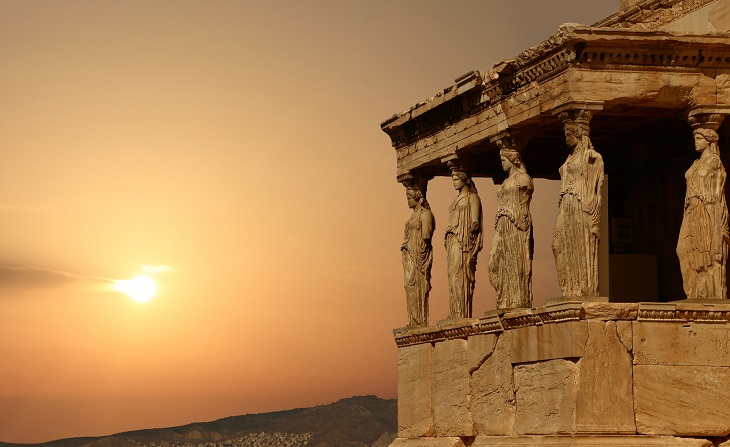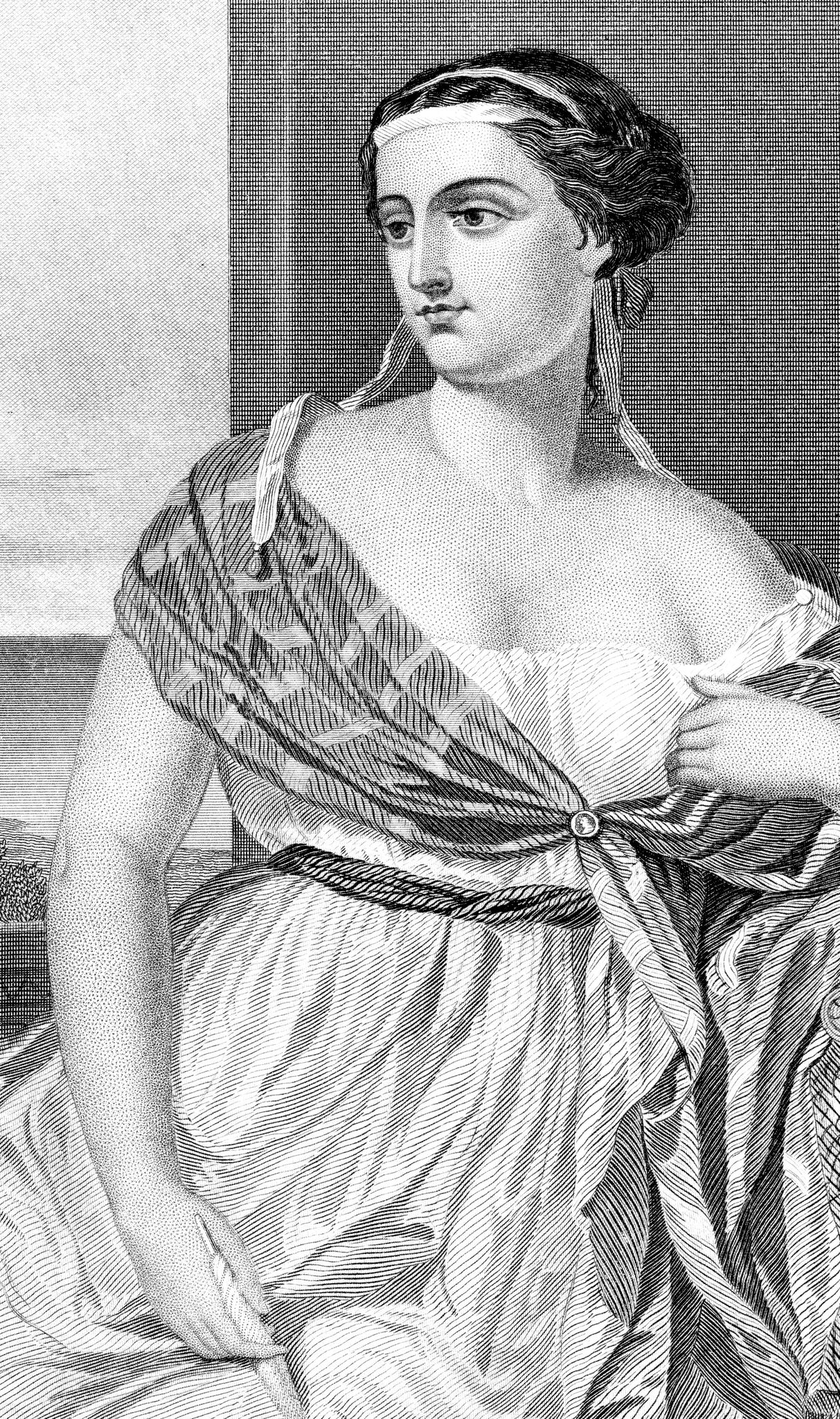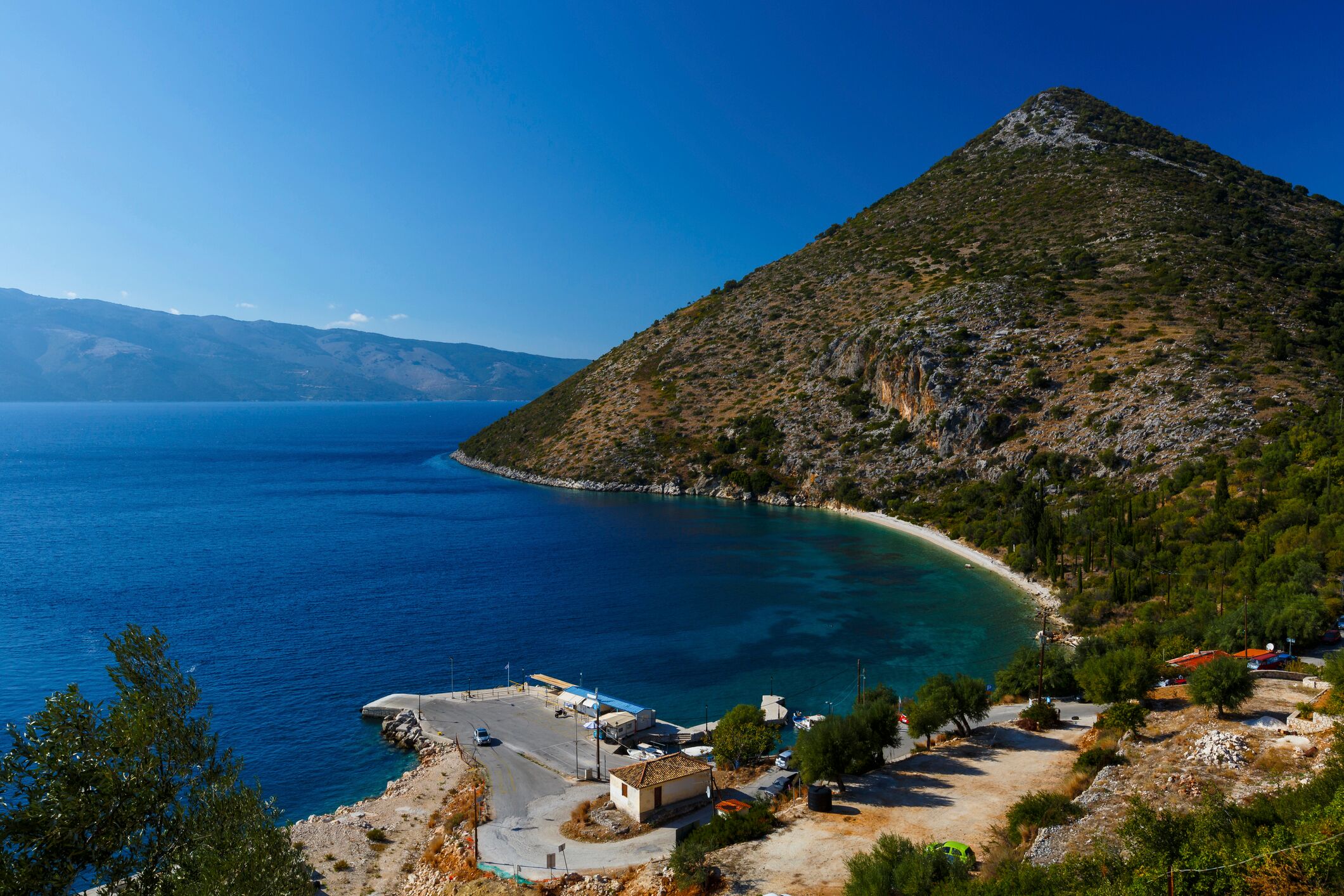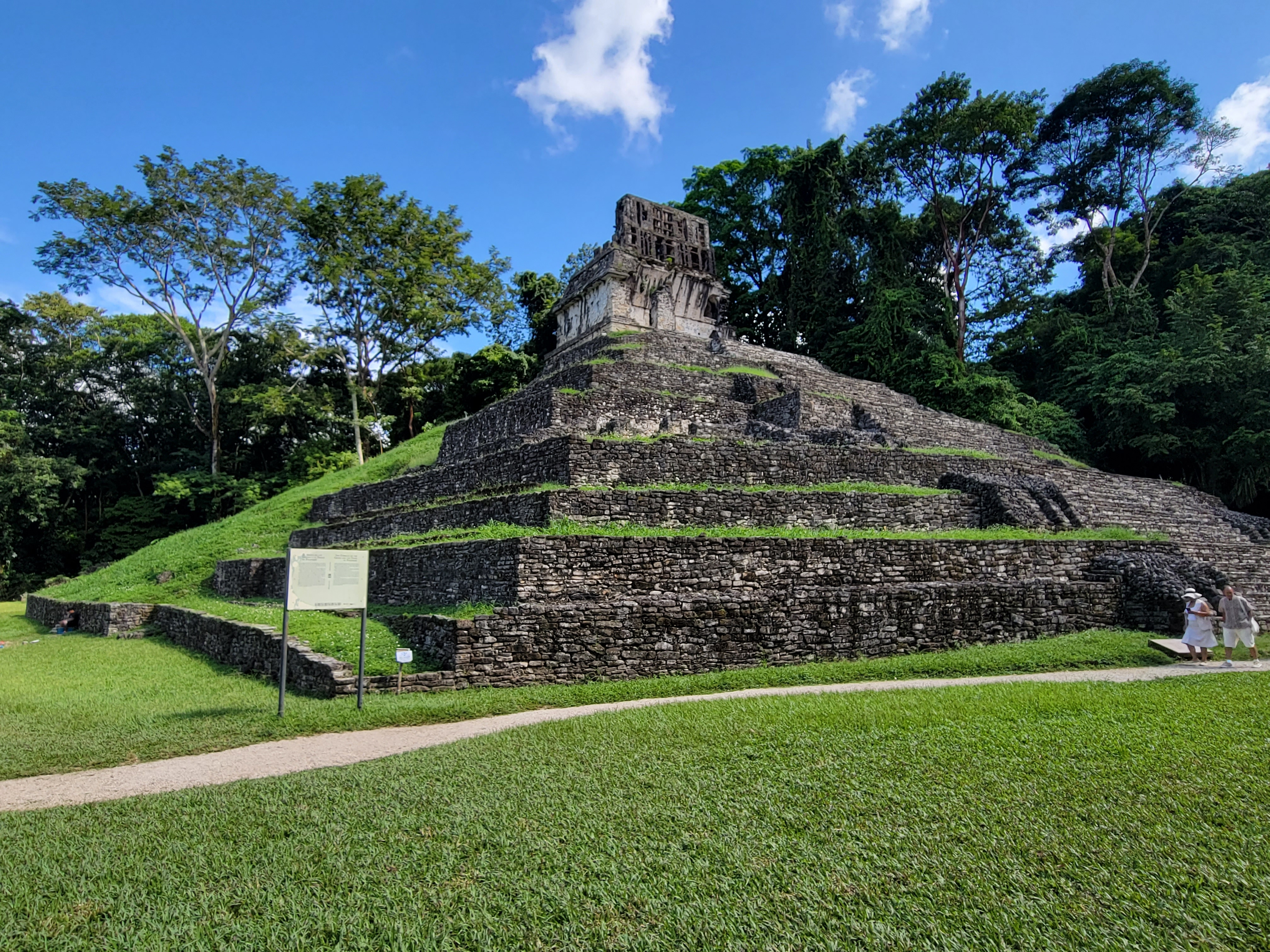
Most people are familiar with, The Odyssey, the epic poem written by Homer. It is one of the oldest extant works of literature that is still widely read today. The Odyssey begins at the end of the Trojan war and follows Odysseus’ long journey home, spanning 20 years. While the poem may on the surface describe a physical journey home, the metaphor of “get home again” can be seen as a journey of learning how to rediscover our true selves. While many of the ancient texts and retellings focus mainly on Odysseus himself, much of the new writing focuses on how Odysseus’ fortunes were changed not only by a hint of his own “myriad-mindedness,” but upon the advice of the women and goddesses of ancient Greece.
In honour of our journey: In the Footsteps of Homer’s Odyssey with Mythologist Phil Cousineau which will be running in May of 2023, we wanted to focus on what we can learn from the women and Goddesses of ancient Greece, in particular Penelope, Circe, Calypso, and Athena.
Penelope
Penelope was the loyal and intelligent wife of Odysseus, who turned down suitors and waited for 20 years for her husband’s return. When looking at how Penelope was portrayed in the original telling, it is clear she was used as a way to portray the ‘ideal woman’ of Ancient Greece. She was loyal, intelligent, prudent and obedient to her husband’s needs. However, in more modern retellings and, when focusing more deeply on her story, you can see that she demonstrated bravery, intelligence, powers of seduction and strength.

Despite living in a time where women were seen as less than men in many ways, and having to live without her husband for two decades, Penelope can inspire us to use our own inner strength and intelligence to survive. She understood how women were seen during that time and used this ‘limitation’ as a way to survive. She used her power of seduction to subtly lead suitors on, to receive gifts from them and in some ways lead them on, simply to buy time while waiting for Odysseus’ return. She also demonstrated the strength and fierceness of women when confronting the mob of suitors after she overheard they were plotting against Telemachus, reminding us to use our strength and power to protect the things that are dearest to us.
Circe
For those of you who have read Madeline Miller’s recent retelling of Circe, you will know that she has the characteristics of a witch and was infamous for her potions and magical powers. In Madeline’s retelling, we learn that she was banished to the Island of Aeaea by Zeus who was jealous of her ability to turn men into monsters and mortals into Gods.
While living on the Island she is visited by Odysseus and his men, who remain living with her for some time. While Circe is often viewed as an archetypal predatory woman to the Greeks, she actually aided Odysseus in his journey, by encouraging him to travel to the underworld (Hades).
On our journey with Phil Cousineau, we visit the Necromanteio of Acheron, a candidate for both the strangest ancient site in Greece and the least visited of the Homeric sites. For millennia, this temple marked the entrance to Hades, where a religious cult developed to celebrate the mysteries of Hades and Persephone. Pilgrims gathered here from all over the ancient world to honour the recently dead and to be led by the resident Oracle of the Dead down into subterranean chambers, where it’s believed they experienced a ritual death and rebirth. In Book Eleven of The Odyssey, Homer portrays the sorceress Circe as the inspiration for Odysseus to descend from here down to the Halls of Hades. On his nekyia, or underworld journey, our hero asked the soothsayer Tiresias for advice on how he could reach home again and be reunited with Penelope after twenty years.
Circe also warns Odysseus of the Sirens and informs him that he should plug his ears to avoid their charms. From Circe, we can learn the importance of connecting with nature and embodying the bravery needed to descend into the ‘underworld’ to gain learning and information even though it may seem uncomfortable.
Calypso
Calypso is described as a Nymph in the Odyssey, and Odysseus remains on her island, acting in some ways as a husband figure for seven years. Eventually, Zeus sends Hermes to convince Calypso to release Odysseus so that he may continue his journey home. Calypso then sends him on his way with wine, bread and materials for a raft.
While residing on her Island, Odysseus continues to pine for Penelope and does not want to remain, however, Calypso is infatuated with him and will not allow him to leave. When examining this part of the epic poem, and Calypso’s role in the story, we can look at the ways in which we may cling on to things that we believe we desire and do not allow jobs, relationships or situations to leave our lives, because we believe that they are what we desire, when they may not actually be for us.
Athena
This goddess plays a very significant role in Odysseus’ journey. She is the goddess of war, strategy and craftiness. Several times throughout his journey, Athena aids and saves Odysseus. She is the one who sends Hermes to warn him of Circe and informs him about the herb Moly which will protect him from Circe’s charms. She is also the one who informs Zeus that Odysseus wishes to leave Calypso’s Islands. Throughout his journey, Athena demonstrates features of confidence, practicality, craftiness, strength, courage and equality, she is also an effective leader and skilful at making decisions.
When looking at Odysseus’ entire journey, it is quite clear to see that Athena is one of the main reasons that he actually returns home.
All of the women and goddesses of ancient Greece portrayed in this epic poem, display characteristics of strength, resilience, intelligence, bravery and compassion. Each in their own way demonstrates the importance of embracing all facets of ourselves. In learning to let go of the things we love, demonstrating loyalty and bravery to survive in the world and in embodying our own inner warriors to continue to walk on our own journey back to ourselves.

If you want to travel in the footsteps of Odysseus and to learn more about the role of these women and goddesses in this story and how their lessons can impact your own life, join us in May with best-selling author Phil Cousineau, who has worked with many of the leading female scholars of our time such as the Lithuanian archaeologist Marija Gimbutas, the Basque anthropologist Angeles Arrien, the labyrinth innovator Lauren Artress, and the dancer Jean Erdman Campbell. He will guide you to sites such as Ithaka, Penelope and Odysseus’ home, as well as several other important sites.

